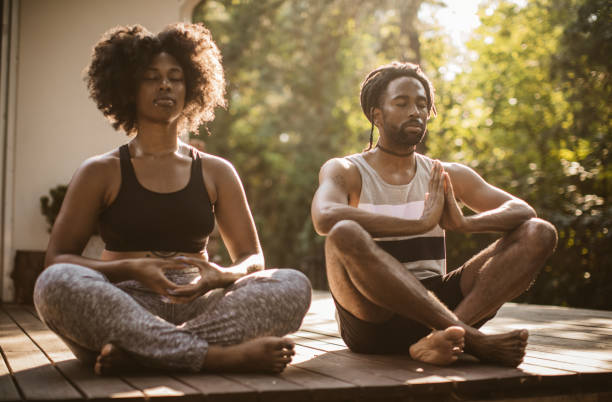- Empty cart.
- Continue Shopping
The Importance of Mindfulness in Relationships

In the hustle and bustle of our daily lives, it’s easy to get caught up in our own thoughts, emotions, and agendas, often neglecting the present moment and the people around us. This lack of presence can take a toll on our relationships with loved ones. Mindfulness, the practice of being fully present and aware in the moment without judgment, can have a profound impact on how we relate to others.
1. Improved Communication
Mindfulness encourages active listening and better communication. When you’re fully present in a conversation, you’re more attuned to the other person’s words, tone, and body language. This heightened awareness enables you to respond more empathetically, leading to more meaningful and constructive dialogues.
2. Enhanced Empathy
Mindfulness cultivates empathy by helping you understand and resonate with the feelings and experiences of others. When you’re mindful, you’re better able to step into someone else’s shoes, see their perspective, and respond with compassion rather than reacting with judgment or defensiveness.
3. Reduced Reactivity
Mindfulness teaches you to observe your thoughts, emotions, and physical sensations without immediate reactions. This self-awareness allows you to respond to situations rather than react impulsively. In relationships, reduced reactivity can defuse conflicts and create a calmer, more harmonious environment.
4. Increased Patience
Mindfulness practice often involves cultivating patience. In relationships, patience is crucial, as it allows you to give others the time and space they need to express themselves, make decisions, or work through their own challenges. Patience fosters understanding and tolerance.
5. Stress Reduction
Stress can negatively impact relationships by leading to irritability, tension, and emotional distancing. Mindfulness techniques, such as deep breathing and meditation, can help manage stress, allowing you to approach your relationships with a clearer and calmer mind.
6. Greater Emotional Regulation
Mindfulness equips you with tools to regulate your emotions effectively. When you’re in control of your emotional responses, you’re less likely to lash out or say hurtful things during conflicts. This emotional regulation promotes healthier and more respectful interactions.
7. Increased Gratitude and Appreciation
Mindfulness encourages you to focus on the present moment and appreciate the beauty and joy in everyday experiences. This heightened sense of gratitude can extend to your relationships, helping you cherish and value your loved ones more deeply.
8. Strengthened Connection
By practicing mindfulness with your loved ones, you can strengthen your connection and intimacy. Sharing mindfulness exercises like mindful breathing or meditation can create shared experiences that foster a deeper bond.
9. Conflict Resolution
Mindfulness can improve conflict resolution skills by helping you remain calm and composed during disagreements. It allows you to approach conflicts with an open mind, seeking resolution rather than winning arguments.
10. Personal Growth
Mindfulness is not just about being present in your relationships; it’s also about personal growth. As you become more self-aware and attuned to your thoughts and behaviors, you can work on becoming a better partner, friend, and family member.
Practical Mindfulness Exercises for Relationships
Here are some practical mindfulness exercises you can incorporate into your relationships:
- Mindful Listening: When someone is speaking to you, give them your full attention. Avoid interrupting and truly listen to what they’re saying.
- Mindful Breathing: Practice deep, mindful breathing when you’re feeling stressed or upset. This can help you stay calm and collected in challenging moments.
- Gratitude Journaling: Keep a gratitude journal where you regularly write down things you appreciate about your loved ones. Share these reflections with them to express your gratitude.
- Mindful Walks: Take mindful walks with your partner or loved ones, paying attention to the sights, sounds, and sensations around you. Use this time to connect and converse.
- Daily Check-Ins: Establish a daily check-in routine with your partner or family members. Ask each other how you’re feeling and what you need from one another.
- Loving-Kindness Meditation: Practice loving-kindness meditation together, wishing well for yourselves and others. This can help cultivate compassion and positivity in your relationships.
In Conclusion, Mindfulness in relationships isn’t just about being physically present; it’s about being fully engaged and emotionally available. By incorporating mindfulness practices into your interactions, you can enhance the quality of your relationships, foster deeper connections, and create a more harmonious and fulfilling life with your loved ones. Mindfulness is a gift you can give to yourself and those you care about, and it can lead to more profound understanding, empathy, and love.








